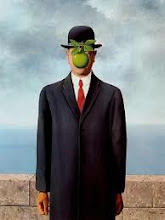The Ultimate Road Trip
“A good traveller is never intent on arriving” – Lao Tzu
This statement was originally written in the literal context of a traveller’s voyage. It may, however, be fittingly applied to the larger entity of the journey of life so as to mean that to have a life of satisfaction one must not constantly yearn for the ultimate goal set out, but must extract joy from every opportunity available along the way. Even if there is a danger of delay in arriving at the destination, it postulates that this may well be worth the wait.
While the travel analogy is a very good one – If we looks back at our own lives it is probably replete with examples of fantastic journeys that were never given their due to our baffling impatience to reach our next milestone.
In school for instance, I remember, we all used to constantly dream of going to college - Where we could get out of uniforms, have all the freedom in the world, bunk classes, late nights, etc. In college we would constantly envisage the joys of graduating and getting a job – living on one’s own, earning and spending our own money, more freedom, independence, etc.
Yet, I am still to meet anyone who does not look back fondly at their school days and say -those were the best days of my life. They would go on to say that the care free lives we had back then were so much better than the care worn days of today – overworked, too may responsibilities, no time to enjoy life, etc.
Just imagine if we had this foresight when we were young – the foresight that these were indeed the best days of our lives – how much more we would value them! But alas that is wishful thinking. The true irony is that we still don’t realise that our current days will not come back either and that things only get tougher as we go along. Yet we still continue to look at the horizon waiting for the next milestone – marriage, children, promotion, relocation, etc, assuming that this will magically resurrect our lives.
Thus it really is critical to ensure that we make the most of now and enjoy the scenery around us. Getting back to the travel analogy, there is one crucial error in the analogy – in travel, at least the destination is something one looks forward to, whereas in life, that is not the case. Thus in life the journey is pretty much all we have to live for
Thus, in the road trip of life:
1. Switch off the air-conditioning, roll down the window, and feel the wind stroke your face. Breathe in the rich scent of the passing meadows and the fragrance of the forests along your way.
2. Stop at as many food joints en route. Make sure you taste the local flavours at each stall, talk to as many locals as you can – you never know when you pick up an important tip on the road ahead.
3. Take frequent halts at ever vista and just soak in the view. Never assume the view will be better from up ahead - don’t move until you have satisfied yourself completely.
4. Keep your camera handy and capture as many memories as you can. These will come in handy when you want to revisit the highpoints of your journey and relive the emotions you felt
5. If the others are in a hurry, don’t rush yourself – remember, you are the driver and only you should decide how much time to spend and where
6. Pick up a few travellers along the way, get entertained by their stories and enriched by their travels. This will help chart your course better, and even if doesn’t, it will certainly help make the trip more interesting and memorable.
7. If you get lost along the way, don’t hesitate to ask around for directions, people are usually quite helpful. And if you happen to take the wrong fork somewhere along the way, don’t fret, there’s no hurry. This roads has just as good a view, in fact, it may be even more scenic than the one you were originally planning to take.
8. The milestone that you see at every mile of your journey should do no more than serve as a reminder of how far you’ve come and how much closer to your destination you are. It must thereby reinforce your determination to make the most of now.
9. Don’t crib about the potholes. In such a long journey there are bound to be a few of these no matter how vigilant you are - if you do however want to crib about the occasional pothole, go ahead, but then don’t forget to appreciate the smooth patches – you’ll find they are far more frequent
Once you have immersed yourself in this singular objective of enjoying to the fullest, every bit of this journey- the destination will cease to guide you. And when you finally do reach your destination it won’t matter how good or bad it is, or whether it was what you had envisaged it to be or not. You won’t care if the destination is a big disappointment, you won’t feel hurt that you are all alone and that there is no one standing atop that mountain with you - because when you look back at all those many miles you have traversed, the experiences you’ve imbibed, the people you’ve encountered, you’ll realise what a fabulous journey it has been. You could then with great satisfaction and pride hang up your boots and take that well deserved rest.
Good luck!

